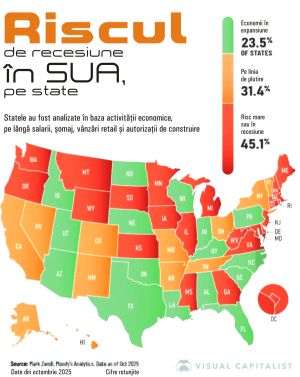The market for loans denominated in Swiss Francs (CHF) caught a breather over the course of the last month, given the continuous drop of the Swiss Franc compared to the other currencies.
Between April 9th and May 9th 2013, the CHF-RON exchange rate saw drastic drops (approximately 0.2 RON), reaching a low on May 8th, (3.4975 RON) and a high of 3.6160 RON (April 9th).
In the beginning of 2005, the Swiss franc was trading at 2.5463 RON. Over time however, the Swiss currency saw a predominantly rising trend, between January 2005 - May 2013. The lowest rate was reached on August 11th, 2011, (4.0898 RON) after the high was reached three years earlier, on July 24th, 2007 (1.8741 RON).
This growth caused serious problems among Romanians who fell for the "mirage" of loans denominated in exotic currencies, such as Swiss francs or Japanese yen. Due to the increase of the non-performing loans, banks have introduced refinancing solutions or even cut the loan installments by up to 25%.
Still, the Swiss Franc has caused surprises on the international market as well, not just in Romania. On Friday, May 10th, the Swiss currency reached a 14-week low, against the Euro (1.2426 EUR/CHF at 10:21, on the New York market), down 1.8% over the similar period of the previous month and down 3.4% over the similar period of last year.
Throughout the last year, the high of a Swiss Franc, announced by the European Central Bank was reached on June 15th, 2012 (1.1973 EUR/CHF), while the low was reached at the end of January 2013 (1.2483 EUR/CHF).
There are multiple reasons behind the drop of the Swiss franc against the Euro. One of them would be the fact that the European currency seems to have been given a boost by the election of a new president and the appointment of a new prime minister in Italy, at the end of February, which have succeeded in eliminating the political deadlock. Another reason would be the speculations that the Swiss Central Bank may raise the minimum exchange rate.
Nevertheless, the Swiss central bank (SNB) will maintain the minimum threshold set for the Euro/franc exchange rate, amid the fragility of the global economic environment, and it is prepared to buy unlimited amounts of foreign currencies, if necessary, according to the president of the institution, Thomas Jordan, quoted by Reuters. Last year, the SNB spent ten times more than in 2011 on interventions intended to keep the minimum threshold set for the Swiss Franc/Euro exchange rate.
According to the data announced on April 28th, 2013, the Swiss Central Bank bought 188 billion Swiss francs worth of foreign currencies, (199 billion dollars), domestically and abroad, compared to 17.8 billion dollars in 2011.




























































